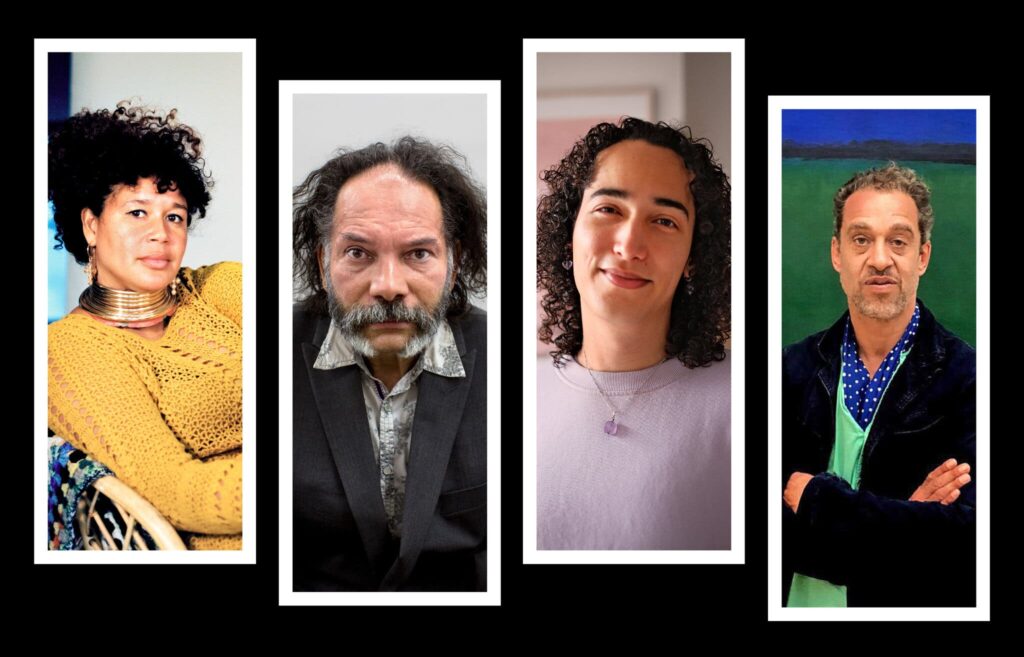
On the event of the watershed exhibition, “Life Between Islands: Caribbean-British Art 1950s – Now” at the Tate Britain, the New York Times hosted a round-table discussion between four of the artists featured in the show, Hew Locke, Alberta Whittle, Ada M. Patterson, and Zak Ové. Through the work of over 40 artists, the show, which is on view through April 3, covers 70 years of Caribbean-British art.
The topic of discussion for the roundtable was the changes, or lack thereof, for artists of color over the last several decades in Britain and the complexity of the Caribbean-British experience. Ové, whose solo show “Canboulay” was on view this fall at De Buck Gallery, has two works in the Tate Britain show. Below is an excerpt of their conversation.
Excerpt from the story:
What does the Caribbean mean to you and how does the region or the countries you come from manifest in your art? Several of your works mention carnival, for example.
ALBERTA WHITTLE Something which features quite significantly in my work as a way for me to think about my Caribbean identity is land — whether that’s access to land, or it’s land as a performance space. That performance of gender or masquerade, thinking about dreamscapes and traditional masquerade, thinking about carnival as a way the world can be put upside down for one day.
In the Caribbean, there is that sense of rising up and taking these moments for agency and critique. I see a lot of space within that masquerade or carnival or bricolage sensibility because when I think about how I reflect on carnival, it is about that critique, but it’s also about collage, how does one bring together these different perspectives and create a form of rupture so that we can have moments for play.
ADA M. PATTERSON That definitely resonates a lot, especially when you said the word rupture. I think for myself, I’m always coming from this sort of fragmented perspective. Something that I enjoy doing when I’m back home in Barbados is going to the east coast, which is the Atlantic coast to see what washes up.
It’s about sort of picking up the fragments of what washes up in these places and trying to make sense of it together and, as a queer person, as a trans person who grew up in Barbados, you do get pushed to places that feel almost on the edges and you have to try and make a different kind of life for yourself. So the parts of my practice that I would say resonate with questions of what it might mean to be Caribbean, for me, it’s just picking up the materials that I’ve inherited from Barbados or from the region.
And when I think about carnival, I’m thinking about the materials of it: disguise and masquerade and what I can do with those to create a different kind of life. I think about disguise in relation to values of discretion as a queer person in the Caribbean and how that might give me more space to breathe.
ZAK OVÉ My experience is different, having been born in Britain in quite a turbulent moment where Black-British identity hadn’t really been declared. I grew up in a period where Black-British kids were still being told to go back to where they came from, so there was a huge misunderstanding as to who we were, in many respects.
So a return to the Caribbean was also searching for an identity that had been described but never seen. It was always fascinating for me to go back to Trinidad in extreme contrast to growing up in Camden Town. Carnival was a revelation, as were many other things — family, culture — but in particular, masks are something that has put a big indent on my work and what I do. The idea of the emancipation that came through that, through exaltation, through costume.

